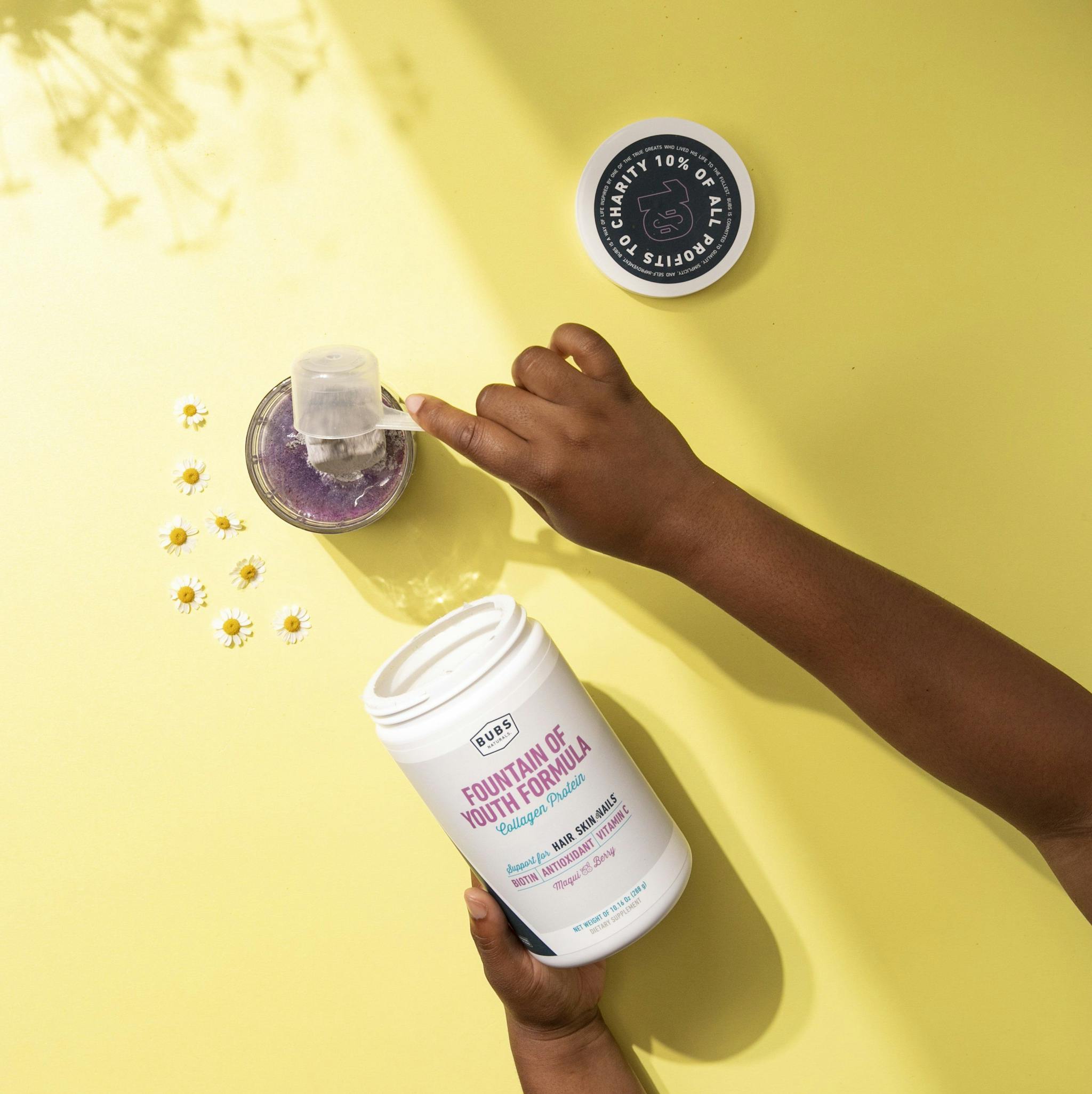
How to Know When Your Skin is Thirsty
TJ Ferrara
over 2 years ago
Did you know that collagen and biotin, along with certain foods, can naturally hydrate your skin?
Hydrating Your Skin with Collagen and Biotin
“Wow, I just love my dry skin,” isn't something you usually hear people say.
Typically, dry skin is a condition which many people try their best to avoid. There’s an undeniable happy-medium between dry skin and oily skin that many spend their life (and their money) trying to obtain. Creams, lotions and serums advertise supple, bouncy and hydrated skin, yet frequently fall short in their promises for perfection. Not only that, but because of the differences in each person’s skin, diet and the surrounding environment (water and air quality have a huge impact on your skin’s condition), no such thing as a one-size-fits-all skin treatment exists.
The secret, then, is not what you apply topically to the skin - it’s what you put into your body. The foods you eat, the supplements you take and even the amount of water you drink per day all helps in keeping your skin plump, glowy and hydrated.
Is my skin dry?
According to Mayo Clinic, dry skin isn’t always a serious condition, but it can be a frustrating one. Dry skin can simply be uncomfortable or it can more seriously impact the look of your skin.
Signs that your skin is dehydrated include:
•
Discoloration, such as excessive redness or ashy grey
•
Tightness
•
Rough to the touch
•
Itchiness; flaking or peeling
•
Fine lines or cracks, including cracks which bleed
If you experience any of these symptoms, it’s likely your skin is in need of a moisture boost.
What causes dry skin
For the most part, dry skin isn’t caused by an internal issue, unless, of course, you’re not drinking enough water each day. Dry skin typically occurs because of an external factor including:
•
Climate - Those living in desert areas are likely to experience dryness year round, while those who live in humid parts of the country will experience spells of dryness when temperatures and humidity percentage dip in wintertime.
•
Harsh chemicals - Products like shampoos, hand and body soaps and even detergents may be formulated with ingredients that have oil-stripping properties. In other words, they remove moisture from your skin and cause excessive dryness.
•
High temperatures - Fireplaces, space heaters and even central heating remove moisture from the air and dries out skin. Frequent hot showers, too, can dry out your skin.
•
Skin conditions like eczema and psoriasis wage war on your skin’s hydration.
Knowing what causes dry skin doesn’t mean you have to move out of Arizona or never turn the heat on in your house again. And while it would be beneficial to opt for natural soaps and detergents, some of the other factors you simply can’t control through no fault of your own. For this reason, your next best bet is to take the time to learn what little changes in lifestyle can be made to enhance your skin’s hydration and keep it as plump and dewy as possible for as long as possible.
Increasing hydration - naturally
Before we go any further, let’s clarify moisturizing and hydrating. Hydrating the skin is providing it with what it needs to stay soft and supple from the inside out. Moisturizing implies using topical products to keep that hydration locked inside - most skin gurus, in fact, use both hydrators and moisturizers to get the glowiest skin possible.
We’re going to focus on hydrating here, as moisturizing won’t do you much good unless you’ve got your skin hydrated in the first place.
Many skin ailments can be improved by taking a look at your diet. What you put into the body will be reflected in the condition of your skin. Believe it or not, but many food items can impact your skin. The best ones for hydrating skin are those high in essential fatty acids (EFA). Note ‘essential’ - not all fats should be avoided! In fact, EFAs should be sought out as they are a key factor in boosting the skin’s natural oil production, thereby creating that hydrated, healthy look.
You can find EFAs in plenty of foods, including:
•
Fish like salmon, mackerel and sardines
•
Safflower oil
•
Walnuts
•
Flax and chia seeds
•
Cod liver oil
•
Soybeans
It goes without mentioning that drinking plenty of water in addition to eating the right foods can naturally bolster hydration as well.
In addition to food, nutrients such as biotin and collagen help to increase hydration.
What is biotin?
Biotin is a vitamin known more commonly as B-7. Biotin does many things for the body, including forming those hydrating fatty acids. Typically, biotin is very easy to come by in a healthy diet (milk, salmon, nuts and nut butters, eggs and whole grains breads), but supplementing biotin can also provide healing benefits to your skin and body overall.
Biotin and collagen - a hydrating powerhouse
When combined with collagen’s natural ability to boost skin elasticity and hydration, biotin can have a double effect on increasing a healthy glow in the skin. But taking two supplements - biotin and collagen - sounds like a lot of work.
We agree, which is why we combined both nutrients into a powerhouse formula, complete with vitamin C and tons of those essential fatty acids mentioned early. The Fountain of Youth Formula contains enough collagen and biotin to not only improve the appearance of skin through healthy hydration, but includes additional vitamins and minerals from tons of power foods like the maqui berry, guava, kiwi and even kale.
We’re not claiming that we’ve actually discovered the fountain of youth, but we’re not going to deny that The Fountain of Youth Formula, with all it’s rich, immune-boosting, skin-hydrating, body-healing properties isn’t a close second. But that’s just our opinion.